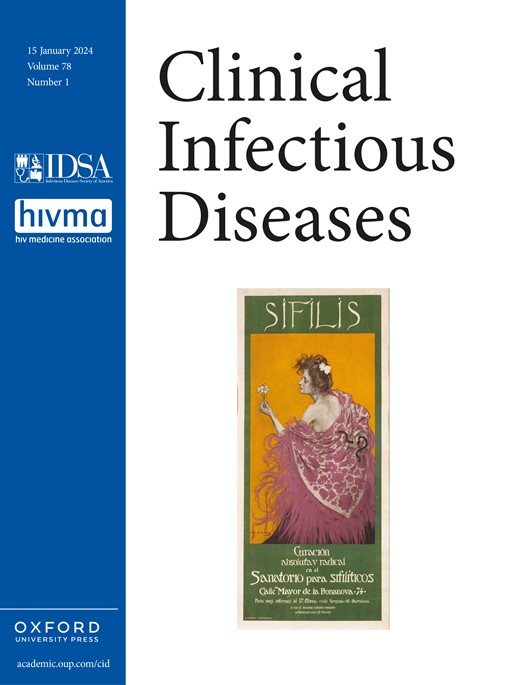用于控制 COVID-19 感染疗法观察研究中混杂因素的倾向得分法
IF 8.2
1区 医学
Q1 IMMUNOLOGY
引用次数: 0
摘要
摘要 作者简要概述了可用于缺乏随机化的观察性研究的不同倾向得分方法。在特定的假设条件下,这些方法可以得出无偏的因果效应估计值,但倾向得分的不同使用方法可能需要不同的假设条件,并导致估计的治疗效应可能会产生有意义的不同解释。作者回顾了这些问题,并考虑了它们对 COVID-19 疗法研究的影响。本文章由计算机程序翻译,如有差异,请以英文原文为准。
Propensity score methods for confounding control in observational studies of therapeutics for COVID-19 infection
Summary The authors provide a brief overview of different propensity score methods that can be used in observational research studies that lack randomization. Under specific assumptions, these methods result in unbiased estimates of causal effects, but the different ways propensity score are used may require different assumptions and result in estimated treatment effects that can have meaningfully different interpretations. The authors review these issues and consider their implications for studies of therapeutics for COVID-19.
求助全文
通过发布文献求助,成功后即可免费获取论文全文。
去求助
来源期刊

Clinical Infectious Diseases
医学-传染病学
CiteScore
25.00
自引率
2.50%
发文量
900
审稿时长
3 months
期刊介绍:
Clinical Infectious Diseases (CID) is dedicated to publishing original research, reviews, guidelines, and perspectives with the potential to reshape clinical practice, providing clinicians with valuable insights for patient care. CID comprehensively addresses the clinical presentation, diagnosis, treatment, and prevention of a wide spectrum of infectious diseases. The journal places a high priority on the assessment of current and innovative treatments, microbiology, immunology, and policies, ensuring relevance to patient care in its commitment to advancing the field of infectious diseases.
 求助内容:
求助内容: 应助结果提醒方式:
应助结果提醒方式:


